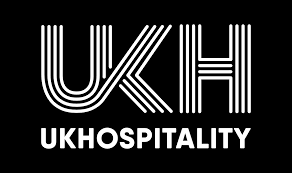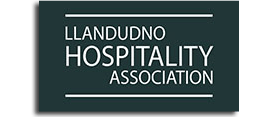UKH COVID-19 Update -
richardscamans • 4 March 2021
UK Hospitality

Political Update
Budget update for businesses in England - This afternoon the Chancellor, Rishi Sunak, outlined his tax and spend policies in the Budget. Below is a summary of the budget for the tourism and hospitality industry. You can read the what you need to know page summary here
or view the budget document here.
Highlights include:
VAT reduction for the UK’s tourism and hospitality sector - The temporary reduced rate of 5% VAT
for hospitality businesses has been extended until the end of September. From October to 31 March 2022 the rate will revert to an ‘interim’ level of 12.5%. There is no change to the scope of the VAT reduction.
It is also worth noting that small businesses that are on the flat Rate VAT Scheme
will have their VAT rate changed for the 1 Oct 2021 – 31 March 2022 period.
Business rates reliefs – There will be a three-month 100% business rates holiday until 30 June 2021. For the remaining three quarters there will be a two-thirds relief (66%) BUT the value of the relief on these nine months (1 July 2021 to 31 March 2022) will be capped at £2 million. Any business that has a rates bill over £4m will therefore be subject to a cap on their relief.
Coronavirus Job Retention Scheme (CJRS) extension
- The CJRS will be extended across the UK for five months until 30 September 2021. This will be full furlough until the end of June. In July business will have to contribute 10% of the wage cost, rising to 20% in August and September. There will be no employer contributions beyond National Insurance contributions (NICs) and pensions required in April, May and June. From July, the government will introduce an employer contribution towards the cost of unworked hours of 10% in July, 20% in August and 20% in September, as the economy reopens.
New apprentice incentive doubled - Employers in England who hire a new apprentice between 1 April 2021 and 30 September 2021 will receive £3,000 per new hire, compared with £1,500 per new apprentice hire (or £2,000 for those aged 24 and under) under the previous scheme. This is in addition to the existing £1,000 payment the government provides for all new 16-18 year-old apprentices and those aged under 25 with an Education, Health and Care Plan, where that applies.
Traineeships - In addition, the Government committed to a tripling of traineeships as part of a wider commitment to vocational education.
Employers in England who provide trainees with work experience will continue to be funded at a rate of £1,000 per trainee.
UK Self-Employment Income Support Scheme (SEISS) fourth and fifth grants confirmed
- SEISS fourth grant – the fourth SEISS grant will be worth 80% of three months’ average trading profits, paid out in a single instalment and capped at £7,500 in total. The grant will cover the period February to April, and can be claimed from late April. Self-employed individuals must have filed a 2019- 20 Self Assessment tax return to be eligible for the fourth grant.
SEISS fifth grant – there will be a fifth and final SEISS grant covering May to September. The value of the grant will be determined by a turnover test. People whose turnover has fallen by 30% or more will continue to receive the full grant worth 80% of three months’ average trading profits, capped at £7,500. People whose turnover has fallen by less than 30% will receive a 30% grant, capped at £2,850. The final grant can be claimed from late July.
While we are on SEISS, the government has announced changes to the time and circumstances when a 100% tax charge may arise in relation to Self-Employment Income Support Scheme payments. It enables HMRC to recover grants where an individual was entitled to the grant at the time of claim but subsequently ceases to be entitled to all or part of the grant. It also extends the Treasury’s regulation making powers in relation to charges if a person is not entitled to a coronavirus support payment, to bring the Self-Employment Income Support Scheme within scope of the legislation.
Restart Grants - Restart grants were announced to support the high street and other areas. For hospitality businesses these are worth £18,000 for properties with a rateable value (RV) of £51,000 or over; £12,000 for those between £15,000 RV and £51,000 RV; and £8,000 for those with an RV of £15,000 or less. State aid rules are still to be clarified.
The government is also providing all local authorities in England with an additional £425 million of discretionary business grant funding, on top of the £1.6 billion already allocated.
New Recovery Loan Scheme for UK businesses
- From 6 April 2021 a new Recovery Loan Scheme has been announced to enable businesses of any size to access loans and other kinds of finance up to £10 million per business once the existing COVID-19 loan schemes close. Launching on 6 April and open until 31 December, subject to review, the Government will guarantee 80% of the finance to the lender. Loans will be available through a network of accredited lenders, whose names will be made public in due course. Term loans and overdrafts will be available between £25,001 and £10 million per business. Invoice finance and asset finance will be available between £1,000 and £10 million per business. Finance terms are up to six years for term loans and asset finance facilities. For overdrafts and invoice finance facilities, terms will be up to three years. Find out more, including eligibility criteria.
Statutory Sick Pay (SSP) Rebate Scheme - Small and medium-sized employers across the UK will continue to be able to reclaim up to two weeks of eligible SSP costs per employee. This scheme is a temporary COVID-19 measure intended to support employers while levels of sickness absence are high.
VAT Deferral New Payment Scheme - Any business that took advantage of the original VAT deferral on VAT returns from 20 March through to the end of June 2020 can now opt to use the VAT Deferral New Payment Scheme to pay that deferred VAT in up to eleven equal payments from March 2021, rather than one larger payment due by 31 March 2021, as originally announced.
Super-Deduction Guidance
- The super-deduction will allow companies to cut their tax bill by up to 25p for every £1 they invest, ensuring the UK capital allowances regime is amongst the world’s most competitive. From 1 April 2021 until 31 March 2023, companies investing in qualifying new plant and machinery assets will be able to claim:
a 130% super-deduction capital allowance on qualifying plant and machinery investments
a 50% first-year allowance for qualifying special rate assets
Extended loss carry back for businesses - To help otherwise-viable UK businesses which have been pushed into a loss-making position, the trading loss carry-back rule will be temporarily extended from the existing one year to three years. This will be available for both incorporated and unincorporated businesses.
Unincorporated businesses and companies that are not members of a corporate group will be able to obtain relief for up to £2 million of losses in each of 2020-21 and 2021-22
Companies that are members of a corporate group will be able to obtain relief for up to £200,000 of losses in each of 2020-21 and 2021-22 without any group limitations
Companies that are members of a corporate group will be able to obtain relief for up to £2 million of losses in each of 2020-21 and 2021-22, but subject to a £2 million cap across the group as a whole
This will be legislated in the forthcoming Finance Bill. Further detail on the group cap will be announced in due course.
Other measures include:
Duty rates on beer, cider, wine and spirits will be frozen for another year
£7 million fund will be available from July 2021 to help employers in England set up and expand portable apprenticeships to enable people who need to work across multiple projects with different employers.
£300 million to extend the Culture Recovery Fund to continue to support theatres, museums and other cultural organisations in England.
£90 million for continued support for government-sponsored National Museums and cultural bodies in England.
A new Help to Grow training scheme over three years for SMEs on digital skills and management skills.
Airports and Ground Operations Support Scheme renewed for a further six months from the start of 2021-22, providing support for eligible businesses in England up to the equivalent of half of their business rates liabilities during 2021-22, subject to certain conditions and a cap per claimant of £4 million.
Zoo Animals Fund extended for a further three months until 30 June 2021, providing licensed zoos and aquariums in England with continued support for animal care and essential maintenance costs.
Funding (over £1 billion) for a further 45 towns in England through the Towns Fund
Eight new English Freeports will be based in East Midlands Airport, Felixstowe & Harwich, Humber, Liverpool City Region, Plymouth, Solent, Thames and Teesside.
£18.8 million to transform local cultural projects in Hartlepool, Carlisle, Wakefield and Yeovil.
£28 million to fund the Queen’s Platinum Jubilee celebrations in 2022, delivering a major celebration for the UK.
£2.8 million to support a UK and Ireland bid to host the 2030 World Cup and £25 million investment in UK grassroots sports, enough for around 700 new pitches.
From the summer, community groups will be able to bid for up to £250,000 matched funding (with some exceptions) through the £150 million Community Ownership Fund to help them to buy local assets to run as community-owned businesses e.g. pubs, theatres, shops, or local sports clubs.
Publication of the prospectus for the £4.8 billion UK-wide Levelling Up Fund, providing guidance for local areas on how to submit bids for the first round of funding starting in 21-22
Budget summary for UKH members - UKHospitality has created a summary document on the budget measures applicable to hospitality businesses for members, which can be found here.
Increase in corporation tax - The rate of corporation tax will increase from April 2023 to 25% on profits over £250,000. The rate for small profits under £50,000 will remain at 19% and there will be relief for businesses with profits under £250,000 so that they pay less than the main rate
Air Passenger Duty (APD) rates to increase in line with RPI from April 2022 - This means that the reduced and standard short-haul rates will remain frozen, Long-haul rates will increase in line with RPI. The rates for long-haul economy flights from Great Britain will increase by £2, and the rates for those travelling in premium economy, business and first class will increase by £5. Those travelling long-haul by private jets will see the rate increase by £13.
Scotland, Wales and Northern Ireland
Funds for devolved nations - An additional £2.4 billion has been allocated to the devolved administrations in 2021-22 through the Barnett formula, as follows
the Scottish Government: £1.2 billion
the Welsh Government: £740 million
the Northern Ireland Executive: £410 million
The devolved administrations will also receive £1.4 billion of funding in 2021-22 outside the Barnett formula.
Other take-outs include
Individuals and businesses in Scotland, Wales and Northern Ireland will continue to be supported by the Coronavirus Job Retention Scheme, self-employment grants, loan schemes and VAT cuts..
Three Growth Deals in Scotland – Ayrshire, Argyll & Bute, and Falkirk – will receive funding more quickly.
Up to £30 million for the Global Centre for Rail Excellence in Wales.
Three City and Growth Deals – in North-Wales, Mid-Wales and Swansea Bay – will receive funding more quickly.
Northern Ireland will benefit from the Corporation Tax exemption for the Northern Ireland Housing Executive, Northern Ireland’s biggest landlord.
See more information here.
Wales announces additional funding for hospitality, leisure and tourism businesses - £30m of targeted support is being made available to support small, medium and large businesses in the hospitality, leisure and tourism sectors as well as related supply chain businesses. The funding is targeted to businesses employing ten or more. Should restrictions be extended at the 12 March review, £150m will be made available for businesses in the hospitality, tourism, leisure and non-essential retail sectors that pay non-domestic rates to receive an additional payment of up to £5k regardless of the number of employees they have. The Sector Specific Grant application phase 2 window opens on Tuesday 9 March 2021 until 8pm on Friday 12 March 2021. In the meantime, Businesses can access the Eligibility Checker and calculator on the Business Wales website.
Other Government Updates
New data available on transport use during the coronavirus (COVID-19) pandemic
New policy paper detailing updates to tax charges when a person is no longer eligible to Self-Employment Income Support Scheme payments
Updated risk assessment guidance for drivers of taxis and PHVs considering installing a safety screen in their vehicle.
Guidance for those affected by changes to UK immigration and borders due to coronavirus has been updated to split the coronavirus guidance for student and worker sponsors into 2 documents.
Update to Kickstart scheme guidance - added information about what employers should spend the £1,500 funding for setup costs on in ‘What you’ll get’. Also added information about what to do if a young person leaves their job placement early in ‘Getting the young people into the job placements’.
Situation Update
To see progress on vaccination targets, visit the UK Weekly Vaccination tracker
To see the number of cases of COVID-19 in England and the UK visit the UK COVID-19 dashboard.
To see the number of cases globally see the World Health Organisation dashboard.
Show More



